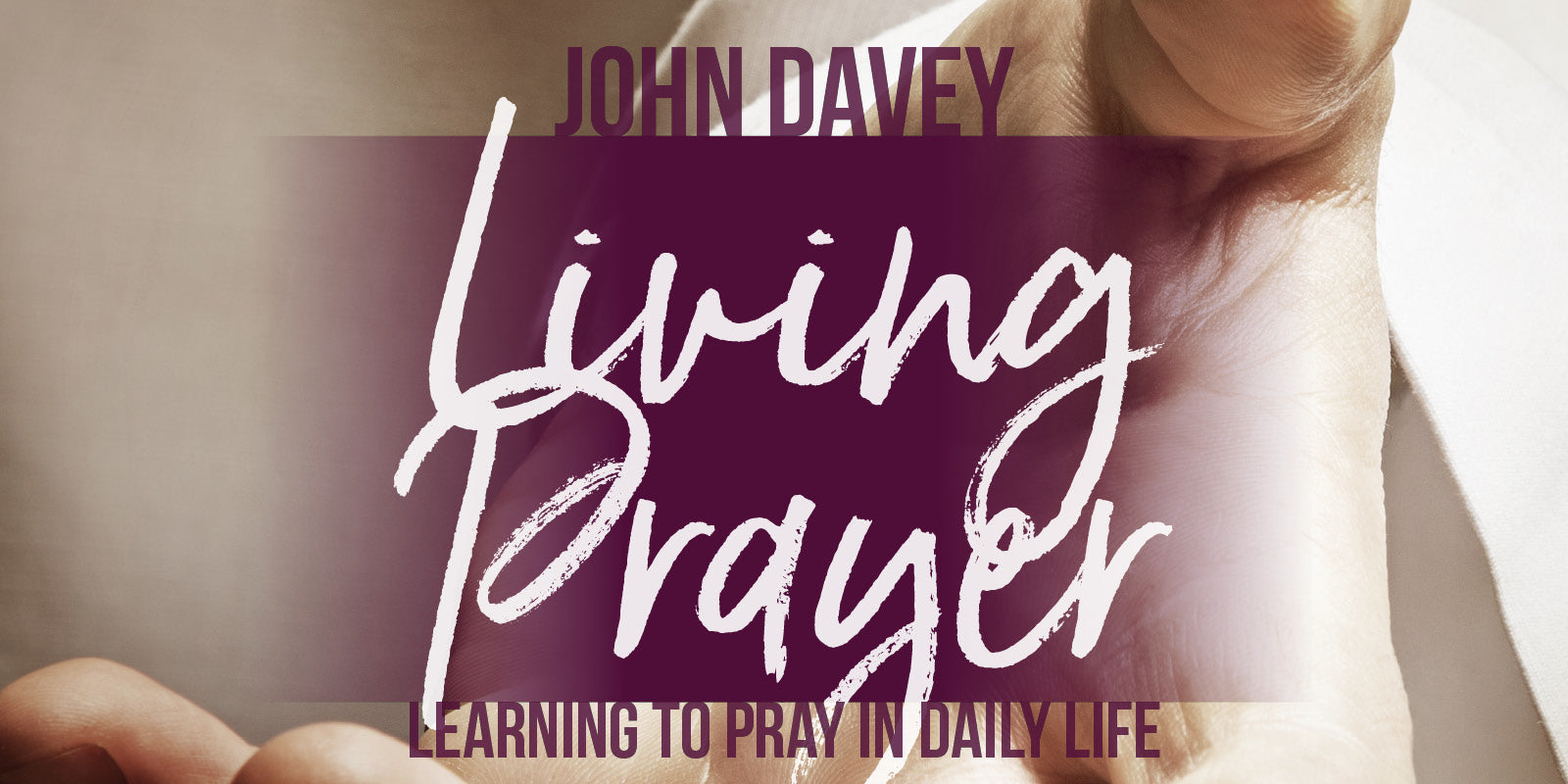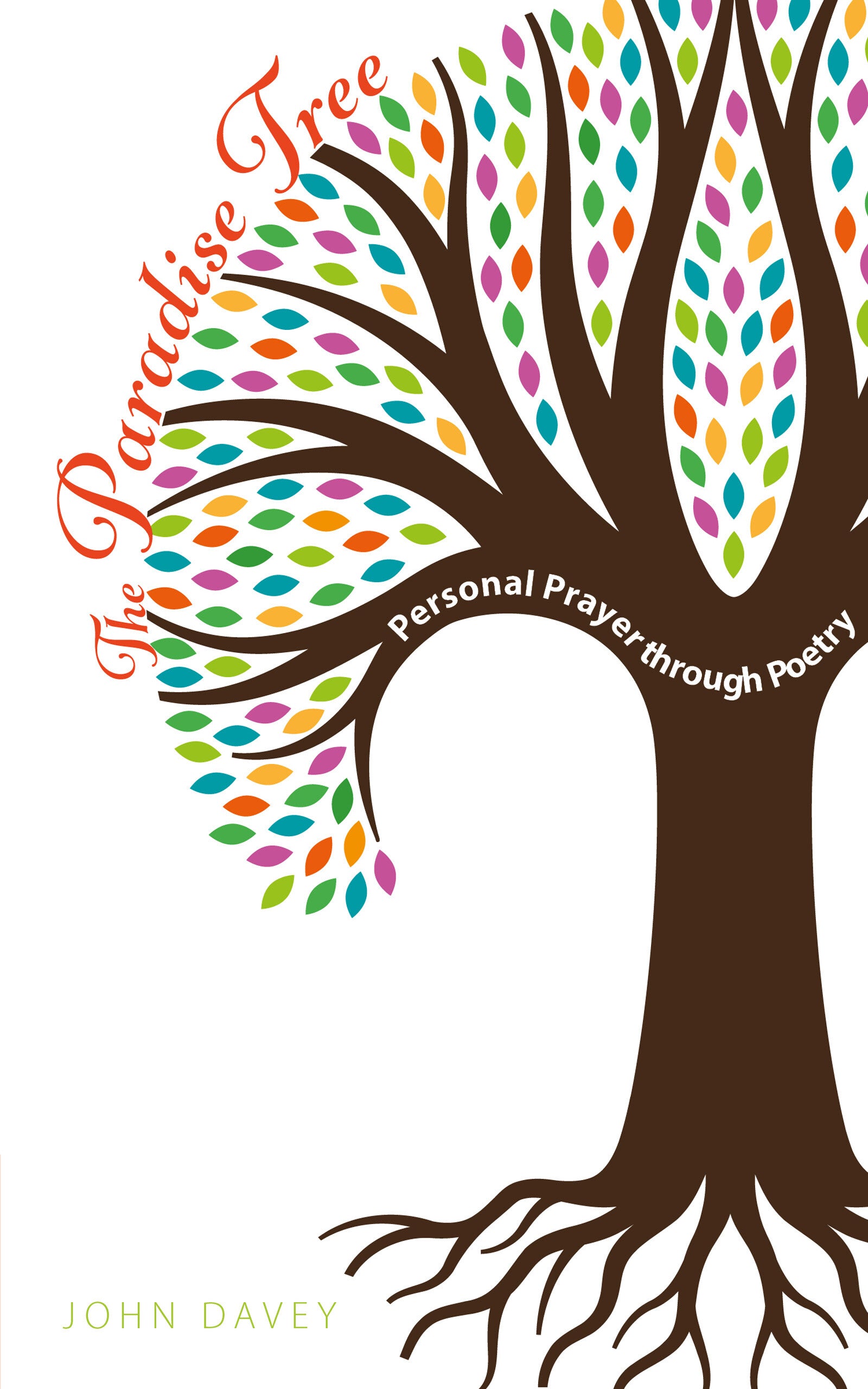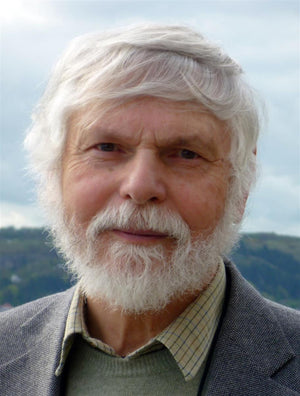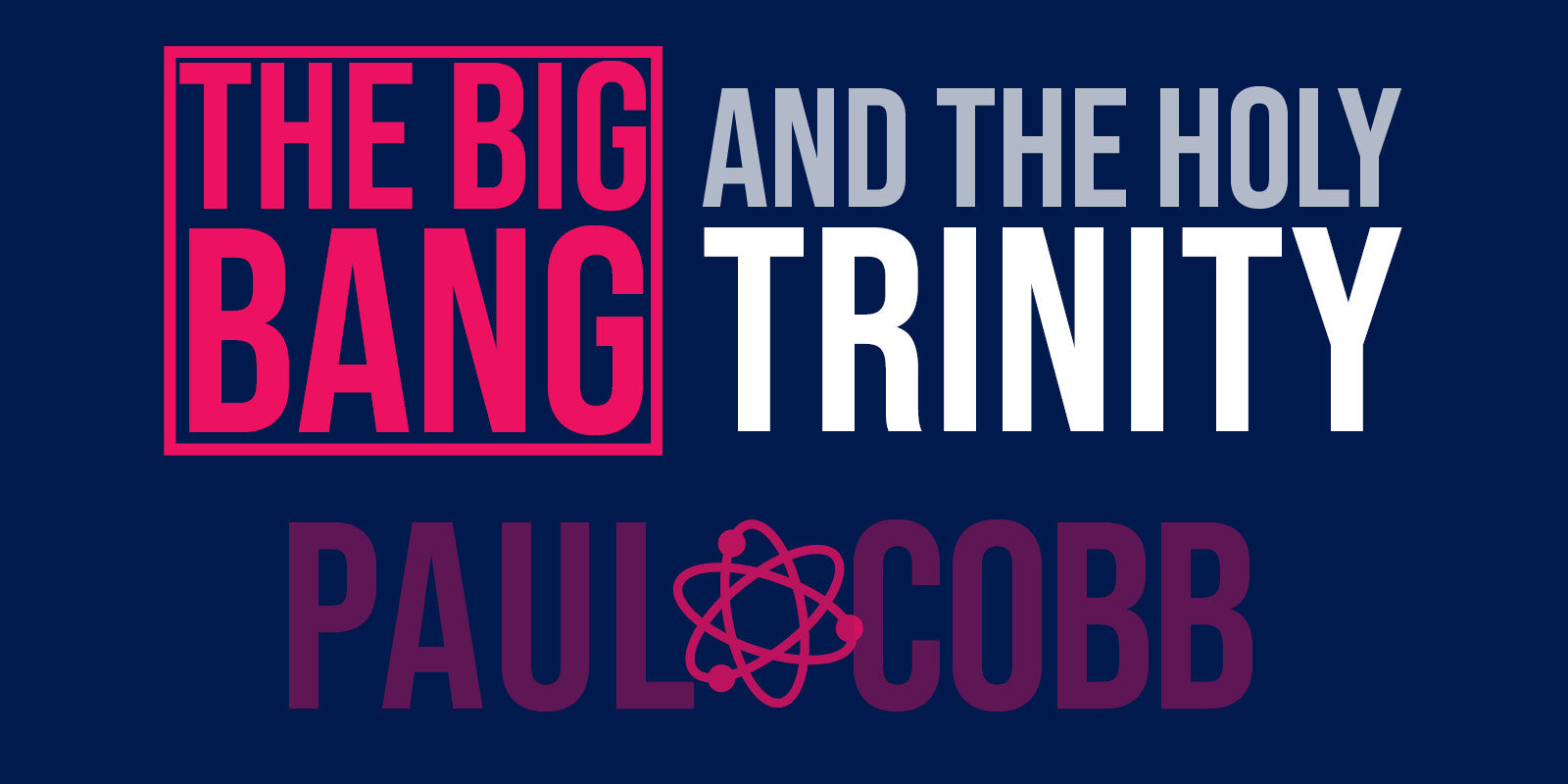 GUEST BLOG: We were sad to learn of the death of author John Davey a few weeks ago. Not long before he died, he wrote this article for our blog, as we had already planned to feature Living Prayer as our Book of the Month in March. At the request of John's widow Mary, we are publishing the article both in his memory and to keep bringing his writing to new readers.
GUEST BLOG: We were sad to learn of the death of author John Davey a few weeks ago. Not long before he died, he wrote this article for our blog, as we had already planned to feature Living Prayer as our Book of the Month in March. At the request of John's widow Mary, we are publishing the article both in his memory and to keep bringing his writing to new readers.
Within the human psyche there is an innate spirituality, an awareness of another dimension to our being which has outwardly manifested itself in the form of numerous belief systems that have shaped human behaviour both beneficially and harmfully throughout history. As our knowledge of the world around and beyond us increases, the attribution of the beginning of all things to a supreme and omnipotent being holds less and less validity. Attendance at formal acts of worship shows a year-on-year decline, but conversely, there is an increase in the number of people seeking alternative pathways to spiritual enlightenment. Is God dead? Or do we need to redefine what we mean by God? In Judaism, God has no name. He is simply the ‘I am’.
Our perception of the Christian God is based upon what we have been taught and what we have read for ourselves in the Bible. Perception, however, has an additional dimension and that is insightfulness. We interpret sensory input—sight, sound, touch and smell—in the light of personal experience, expectation, aspiration and hope, and our belief and faith in God is contingent on the fulfilment of our expectation of God. The Bible is a record of man’s perception of God through encounter with God. Written over time, the Bible encompasses every human emotion and places God at the heart of every human experience. At times the Bible may baffle us by its contradictions, especially when it presents us with differing portrayals of God, ranging from cruel, indifferent and revengeful to caring, compassionate, forgiving and nurturing. But it is a human record and as such it reflects human nature and human need. Within the pages of the Old Testament, however, we discern, as through a veil, the shadow of the true God, a shadow that is given substance and reality in the humanity of God in Jesus Christ. The Bible is timeless, but it needs to be understood in the context of our own time and our own situation. God speaks to us within the depths of our being with a contemporary voice. God is of the now. He is not history; he is an ever-present reality.
“Why should I believe in God?” “What has he done for me?” These are questions that have a validity if we perceive God as an all-providing being who rewards and punishes according to merit. Who in their right mind would believe in an almighty being who lets his own beloved son die a horrible death on a cross, a God who says “suffer the little children to come unto me and woe betide those who harm them”, and yet does nothing to prevent the death of innocent little ones in a mudslide or at the hands of a deranged gunman? Would you believe in a God who professes peace yet fails to prevent mass slaughter in wars and acts of terrorism? As for heaven and hell, can we really believe that such places exist? What of miracles, and the greatest miracle of all, resurrection from the dead? As for prayer, how many entreaties do we have to make before God does something to address our needs, wants and desires? The seemingly impossible answer to these questions lies within the depth of our own being.
“Why should I believe in God?” “What has he done for me?” These are questions that have a validity if we perceive God as an all-providing being who rewards and punishes according to merit. Who in their right mind would believe in an almighty being who lets his own beloved son die a horrible death on a cross, a God who says “suffer the little children to come unto me and woe betide those who harm them”, and yet does nothing to prevent the death of innocent little ones in a mudslide or at the hands of a deranged gunman?
“I am the light of the world”, proclaimed Jesus of Nazareth, the son of a village carpenter, some two thousand years ago, and the visible presence of God was revealed to humankind, as a non-judgmental and self-giving God who was loving, compassionate and forgiving. Christ’s teaching was simple to understand. It was about the awareness of our true identity as made in the image of God. Being a Christian is a call to give visible expression to his living presence in what we say and what we do in our time and to our generation. Believing in God is about believing in ourselves as made in God’s image, and, as such, we become to the world around us his visible presence. As for prayer, all our prayers were answered when Jesus gave of himself to others in sacrificial love on the cross at Calvary. “This you have done for me, what can I do for thee?” is the question we must ask of ourselves when we contemplate the crucifixion and resurrection of Jesus Christ. Prayer is not about asking God to do something for us, but the remembrance that we must do something for him. Prayer is the movement of the heart, mind and will to that inner voice which calls us to the acknowledgment of God’s presence, and to do what he would want us to do in self-giving response to the needs of others.
In the life and teaching of Jesus we have a definition of ‘God’. He is The Way, The Truth, and The Life. It is the way to enlightenment and hope of eternal life through the continuity of our being as part of the all-being of God; it is the truth, in the acknowledgement of our universal commonality with all being; and it is the life, in giving expression to our commonality by sharing all that we have and all that we are with others. It is the love bond that is God himself.
During forty years of full-time ministry, John Davey served as a pastor and mentor to people from all walks of life, and was, for a time, Chaplain and Minor Canon of St George’s Chapel, Windsor. He published two books with Sacristy Press: The Paradise Tree and Living Prayer, the latter of which is our March #BookOfTheMonth. Get free economy delivery when you buy both!












